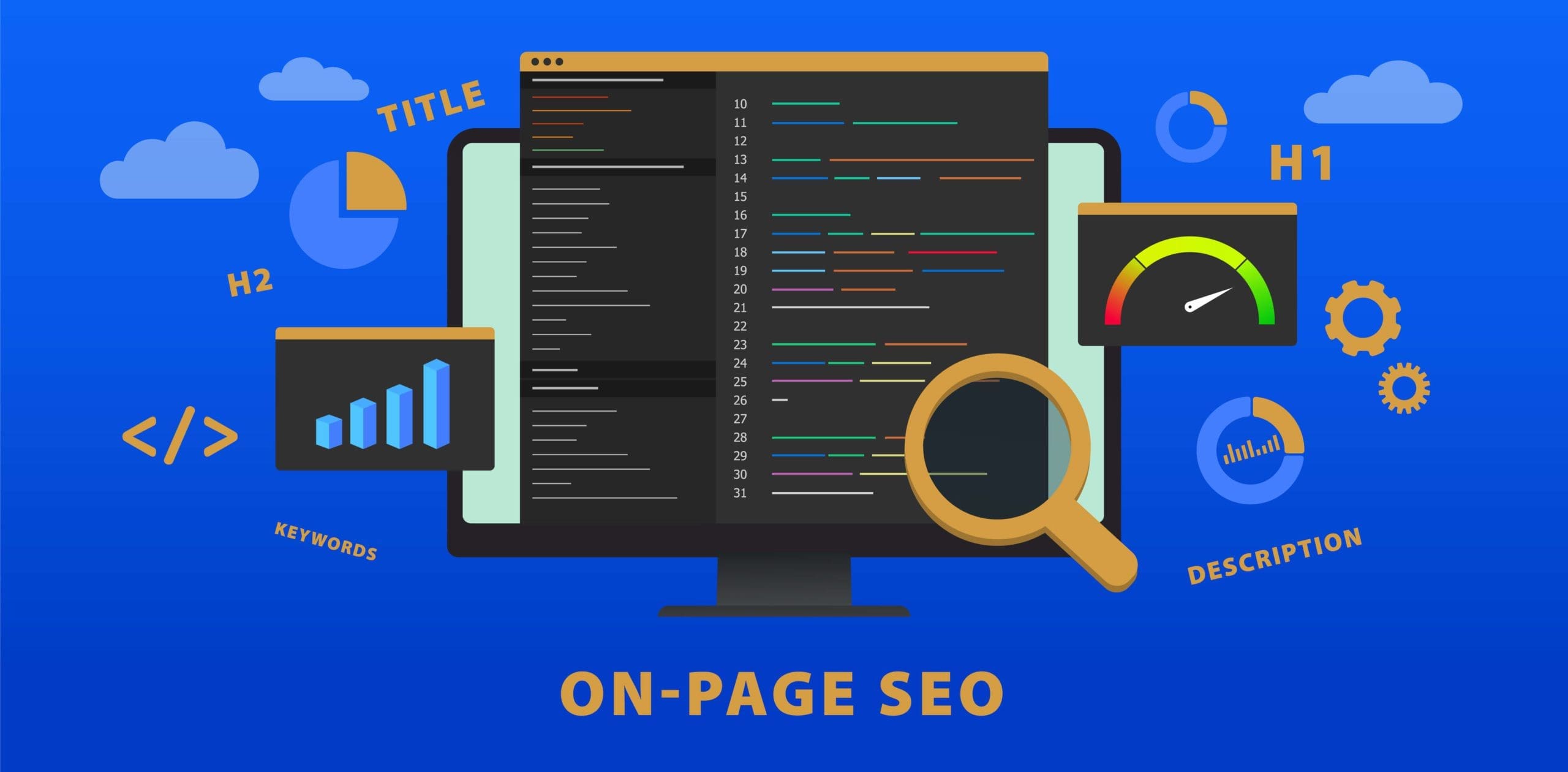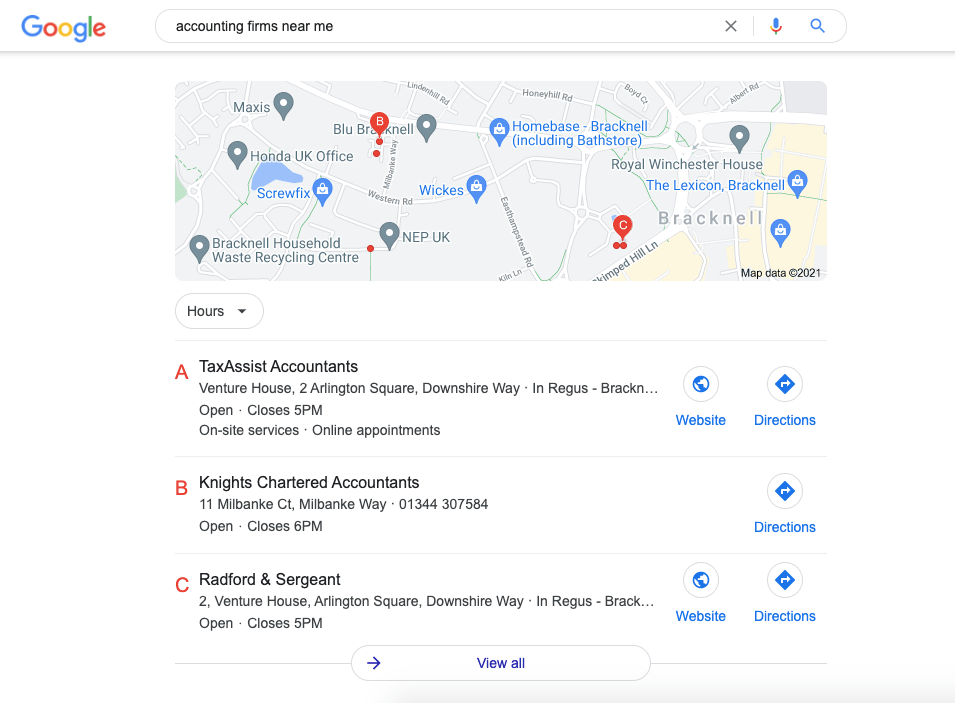As humans, we have become increasingly reliant on technology as a means to solve our problems and answer our queries. As a result, the search engines (particularly Google) have become our very best friend.
Always there when you need them, any time, any place: for this reason, it comes as no surprise that 81% of people turn to the search engines when looking for a new service provider or product, meaning if your accounting firm doesn’t have a powerful SEO strategy in place, you will be passing up a lot of new business opportunities.
Of course, as an accountant, SEO is unlikely to be your strong point; in fact, the whole concept is likely alien to you. But fear not – we are here to change that. Keep reading to discover exactly what SEO is, why it’s so important and the steps you can take to get your website heading for the top of the ranks.
What is SEO for accounting firms?
SEO (otherwise known as search engine optimisation) is the process of optimising your website in the hopes of increasing your visibility for relevant search terms, which in turn, will improve both the quality and quantity of organic traffic driven to your site by the search engines.
To create an effective SEO strategy for your accounting firm, it’s important to understand that SEO is not just about impressing the search engines – first and foremost, you need to think about the end-user. It’s fundamental to have an understanding of what your target audience is searching for – including the type of answers they are expecting to find and the keywords they are using to find them – as this is what will allow you to tailor your content to best suit their wants and needs.
The role of the search engines
On the flip side, the search engines will also be looking for certain things within your content to help them determine which pages best answer each specific search query and thus, which pages should be ranked highest. The search engines rely on three key mechanisms to assess web pages:
- Crawling: the search engines use bots (web crawlers) that are consistently searching the internet for new content. These crawlers gather any information needed to index a page correctly – which includes both the code and content for each URL – then use links within the page to navigate over to new URLs.
- Indexing: the search index keeps an organised record of all available web pages on the internet using the information obtained by the web crawlers.
- Search algorithms: the search engines use calculations to help grade the quality of web pages, determining which page will best satisfy a user’s search query and ranking the results from most to least relevant.

So, if your site is yet to be crawled and indexed, you will likely have a bit of a wait before you begin to see any relevant pages ranking in the search results. Other possible explanations as to why your site is yet to rank in the SERPs (search engine results pages) include:
- A lack of inbound links.
- Poor site navigation.
- Your site has been penalised for black hat SEO tactics.
Black hat & white hat SEO
To elaborate on the above, when researching SEO, you may come across the terms “white hat” and “black hat”. White hat SEO refers to aboveboard tactics and black hat SEO refers to unethical strategies that attempt to fool the search engines, such as keyword stuffing and private link networks. It’s important to note that black hat SEO can have serious implications, putting websites at high risk of being penalised or even removed from the search results completely.
Ultimately, the best way to ensure your site is ranked highly in the organic search results is to fulfil user intent, as a website that effectively answers a user’s search query will always be favoured by the search engines.
Why is SEO for accounting firms important?
As we’ve already mentioned, search engines have an enormous influence on people’s decision-making. If your site is top of the SERPs, the likelihood is, the searcher will listen. After all, if you have a question, who do you turn to for the answer? For most, it’s Google. People trust and respect it more than most other sources, so if you can get to the top of the ranks, you can expect to see positive results.
Some of the most notable benefits of SEO for accounting firms include:
- Drive organic traffic to your website.
- Generate more and higher quality leads.
- Reach the right people at the right time.
- Improve conversion rates.
- Provides a competitive advantage.
- Improve your ROI.
To see the benefits of SEO for accounting firms in action, be sure to check out our Wilson Partners case study here.
How can your accounting firm get started with SEO?
There are several types of SEO, but arguably the 4 most important for your accounting firm are on-page, off-page, technical and local.
On-page SEO for accounting firms
When we refer to on-page (or on-site) SEO, we are referencing the process of optimising areas within your site in the hopes of improving your ranking in the organic search results. In other words, this is the stuff you have total control over. Some of the most important on-page ranking factors include:
- Content
- Title tags
- Keyword targeting
- Meta description
- URL structure
- Alt text

Generally, you’ll want to kick things off with keyword research. This will not only allow you to identify relevant topics that resonate with your audience, but will also enable you to analyse the performance of your competitors effectively.
To help identify your target keywords, you can use tools such as WordStream and Moz. Some examples of popular terms relating to the accountancy market include:
- Bookkeeping
- Tax return
- Chartered accountant
- Accounting firms near me
- Payroll
Off-page SEO for accounting firms
Off-page, or off-site, SEO is concerned with actions taken outside of your website that have an influence on your ranking in the SERPs. It’s all about proving (to both the search engine and the end-user) that your site is trustworthy, credible and relevant, and that you have a lot of authority within your sector.
Commonly noted as the most important off-page ranking factor, inbound links have a huge impact on organic rankings, with each being viewed as a recommendation by the search engines. There are several ways to obtain inbound links, but the easiest (and most natural) way to do so is simply by writing great content: if your content is helpful and insightful, people will be inclined to link to it.

Regardless of how you obtain your links, each will pass on a certain amount of equity; the more they provide, the better it will be for your SEO. Some of the signals determining link equity include:
- Site popularity
- Site authority
- The recency of the link
- The anchor text used to link to your site
- The number of additional links on the linking page
Whilst link building is essential, it is only one part of off-page SEO. Other ranking factors include:
- Social media marketing
- Influencer marketing
- Guest blogging (which your firm can get involved with on sites like Inspire Accountants and Accounting Directory)

Technical SEO for accounting firms
Technical SEO is there to ensure that your site meets the technical requirements of the search engines, enabling them to effectively crawl, render and index key pages within your website. Some of the key ranking factors for technical SEO include:
- Mobile optimisation
- Site speed
- Broken links
- Internal links
- Structured data
- Site security
- XML sitemap
- Unique content
To discover more about technical SEO, be sure to check out our ultimate guide here.
Local SEO for accounting firms
In recent years, “near me” queries have grown by over 200% which indicates that people are more inclined to work with local accounting firms, thus you need to ensure you put yours on the (virtual) map!

The first step to mastering local SEO for your accounting firm is to complete a Google My Business profile. This should include as much information about your firm as possible, with everything from your address and opening hours to your contact information and business name.
Other key local SEO ranking factors include:
- Link signals (as discussed in the off-page SEO section earlier)
- Client reviews
- On-page signals (including location-focused keywords and NAP (name, address, phone number) as this will often be cross-referenced to prove legitimacy)
- Behavioural signals (for example, click-through rate and mobile clicks to call)
- Directories (such as Yell or Thomson Local and more industry-specific ones such as Find UK Accountant and Local Accountants UK)
So, there we have a brief overview of SEO to help get you started. If you are looking for more help with other areas of digital marketing, be sure to check out our ultimate guide to marketing for accounting firms here or head over to our marketing for accounting firms page to discover more about how our agency can help your firm to grow.
Ready to progress to the next step? Boss Digital has over 10 years of experience in SEO, so why not contact us today for a free consultation?




